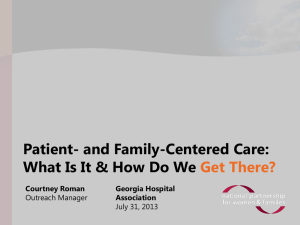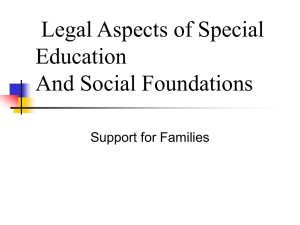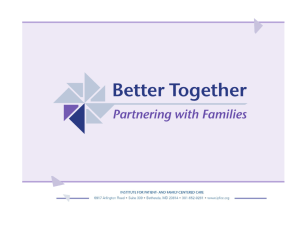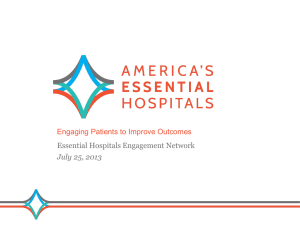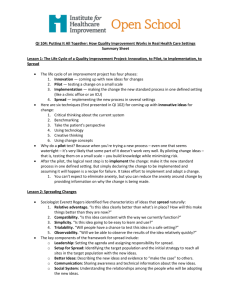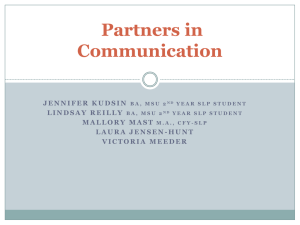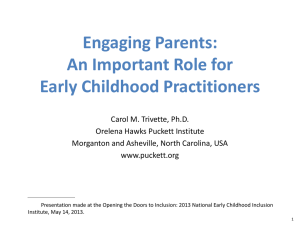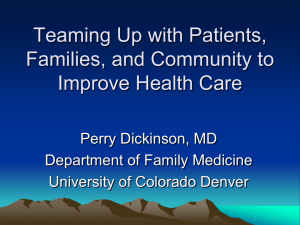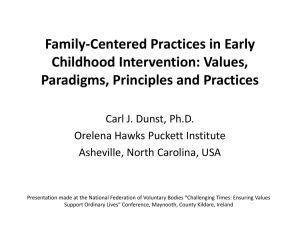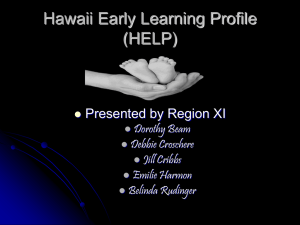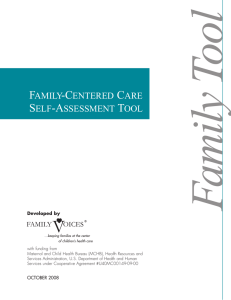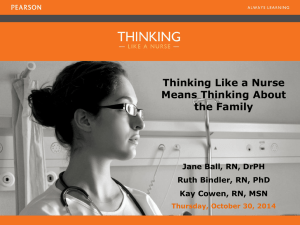Core Concepts of Patient- and Family-Centered Care
advertisement
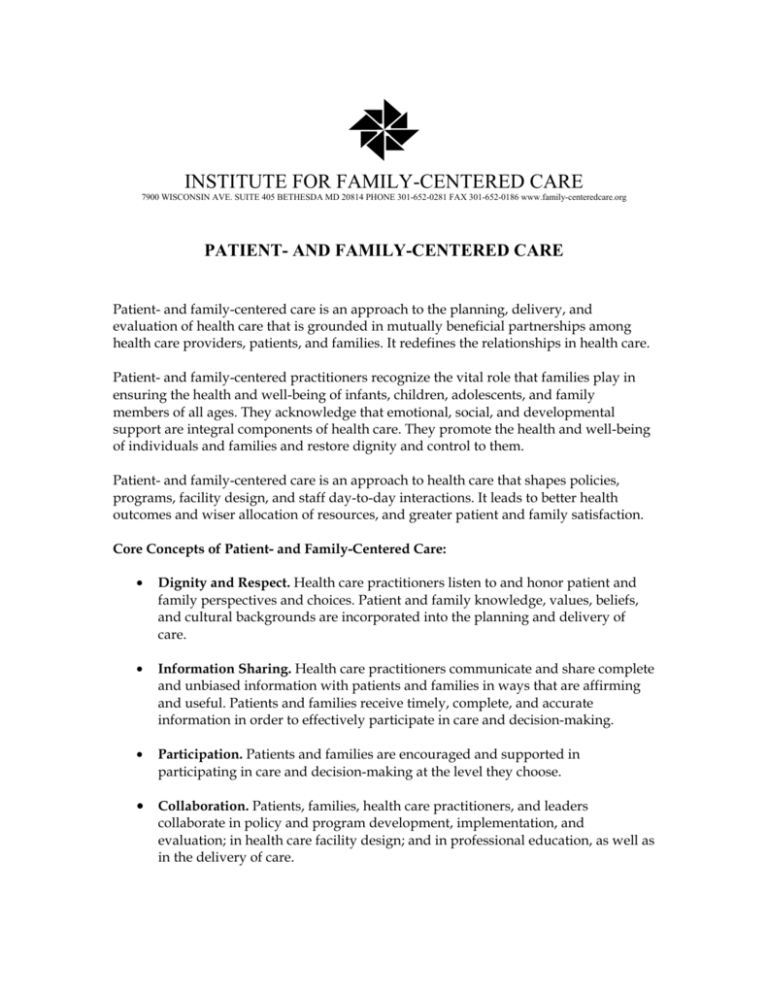
INSTITUTE FOR FAMILY-CENTERED CARE 7900 WISCONSIN AVE. SUITE 405 BETHESDA MD 20814 PHONE 301-652-0281 FAX 301-652-0186 www.family-centeredcare.org PATIENT- AND FAMILY-CENTERED CARE Patient- and family-centered care is an approach to the planning, delivery, and evaluation of health care that is grounded in mutually beneficial partnerships among health care providers, patients, and families. It redefines the relationships in health care. Patient- and family-centered practitioners recognize the vital role that families play in ensuring the health and well-being of infants, children, adolescents, and family members of all ages. They acknowledge that emotional, social, and developmental support are integral components of health care. They promote the health and well-being of individuals and families and restore dignity and control to them. Patient- and family-centered care is an approach to health care that shapes policies, programs, facility design, and staff day-to-day interactions. It leads to better health outcomes and wiser allocation of resources, and greater patient and family satisfaction. Core Concepts of Patient- and Family-Centered Care: • Dignity and Respect. Health care practitioners listen to and honor patient and family perspectives and choices. Patient and family knowledge, values, beliefs, and cultural backgrounds are incorporated into the planning and delivery of care. • Information Sharing. Health care practitioners communicate and share complete and unbiased information with patients and families in ways that are affirming and useful. Patients and families receive timely, complete, and accurate information in order to effectively participate in care and decision-making. • Participation. Patients and families are encouraged and supported in participating in care and decision-making at the level they choose. • Collaboration. Patients, families, health care practitioners, and leaders collaborate in policy and program development, implementation, and evaluation; in health care facility design; and in professional education, as well as in the delivery of care. Leadership Organizations Supporting Patient- and Family-Centered Care Agency for Healthcare Research and Quality (AHRQ) American Academy of Pediatrics (AAP) American Association of Medical Colleges (AAMC) American College of Healthcare Executives (ACHE) American Hospital Association (AHA) American Nursing Association (ANA) Association of Maternal and Child Health Programs (AMCHP) Bureau of Medicine and Surgery, US Department of Defense HealthCanada Institute for Healthcare Improvement (IHI) Joint Commission for the Accreditation of HealthCare Organizations (JCAHO) Maternal and Child Health Bureau, US Department of Health and Human Services (MCHB) National Patient Safety Foundation (NPSF) National Association of Emergency Medical Technicians (NAEMT) National Association of Children’s Hospitals and Related Institutions (NACHRI) National Initiative for Children’s Health Care Quality (NICHQ) Remaking American Medicine Society of Pediatric Nurses (SPN) University of South Florida Rhea and Lawton Chiles Center Vermont Oxford Network (VON) About the Institute for Family-Centered Care The Institute for Family-Centered Care, a non-profit organization founded in 1992, takes pride in providing essential leadership to advance the understanding and practice of patient- and family-centered care. By promoting collaborative, empowering relationships among patients, families, and health care professionals, the Institute facilitates patient- and family-centered change in all settings where individuals and families receive care and support. The Institute also serves as a central resource for policy makers, administrators, program planners, direct service providers, educators, design professionals, and patient and family leaders. For more information visit us at www.familycenteredcare.org
